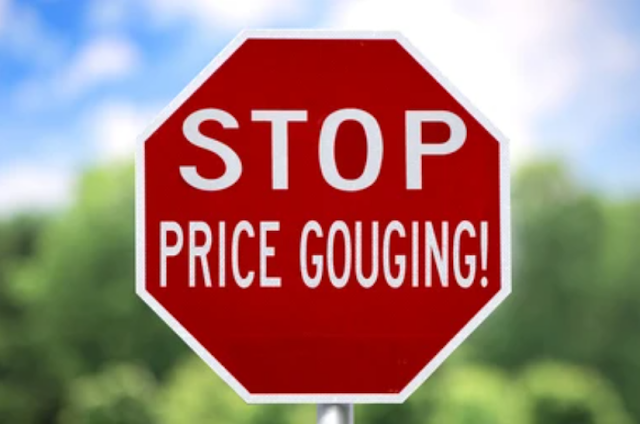Price Gouging: Recognizing and Reporting Excessive Pricing
Price Gouging: Recognizing and Reporting Excessive Pricing
Price gouging refers to the practice of raising the prices of goods or services to unfair or excessively high levels during times of increased demand or emergencies. It takes advantage of consumers' urgent needs or limited options. Recognizing and reporting price gouging is important to protect consumers and promote fair market practices. Here's a detailed explanation of price gouging, how to recognize it, and steps to report excessive pricing:
Understanding Price Gouging:
- Price gouging typically occurs during emergencies, natural disasters, or other situations where demand for certain goods or services surges.
- It involves significant and unjustified price increases that are substantially higher than the average price before the event or compared to similar products or services in the market.
- Price gouging may affect essential items such as food, water, fuel, medical supplies, hand sanitizers, face masks, or accommodation during a crisis.
Recognizing Price Gouging:
- Familiarize yourself with the normal prices of essential goods or services in your area before an emergency or during regular market conditions.
- Monitor price changes and compare current prices to pre-event or regular market prices.
- Be cautious of sudden and extreme price increases that seem unjustified or significantly higher than the average market prices.
Research Local Laws and Regulations:
- Understand the laws and regulations related to price gouging in your jurisdiction. Laws can vary by country, state, or local government.
- Research the specific criteria or thresholds that define excessive pricing or price gouging in your area.
- Familiarize yourself with the penalties or consequences imposed on businesses found guilty of price gouging.
Document Evidence:
- Gather evidence to support your claim of price gouging. This may include receipts, advertisements, photographs, or any other relevant documentation.
- Keep records of the date, time, location, and price of the product or service in question.
- If possible, gather evidence of the normal or pre-event prices through screenshots, advertisements, or any available sources.
Report Price Gouging:
- Contact your local consumer protection agency or regulatory body responsible for handling price gouging complaints. This may be a state attorney general's office, consumer affairs department, or a specific agency designated for price gouging investigations.
- Provide them with detailed information about the product, seller, location, price, and any supporting evidence you have gathered.
- Follow the specific reporting procedures outlined by the agency or organization to ensure your complaint is properly documented and investigated.
Raise Awareness and Report to Media:
- Share your experiences on social media platforms, community forums, or consumer advocacy websites to raise awareness of price gouging practices.
- Report incidents of price gouging to local news outlets, radio stations, or relevant media channels to highlight the issue and put pressure on authorities to take action.
Stay Informed and Be Vigilant:
- Stay updated on news and alerts regarding price gouging during emergencies or times of increased demand.
- Be cautious of false claims or misinformation related to price gouging and verify information from reliable sources.
By recognizing and reporting price gouging, you contribute to protecting consumers from unfair practices and help maintain a fair marketplace during emergencies or times of heightened demand. Collaboration between consumers, regulatory bodies, and the media is crucial to effectively combat price gouging and ensure that essential goods and services remain accessible and affordable for all.















No comments